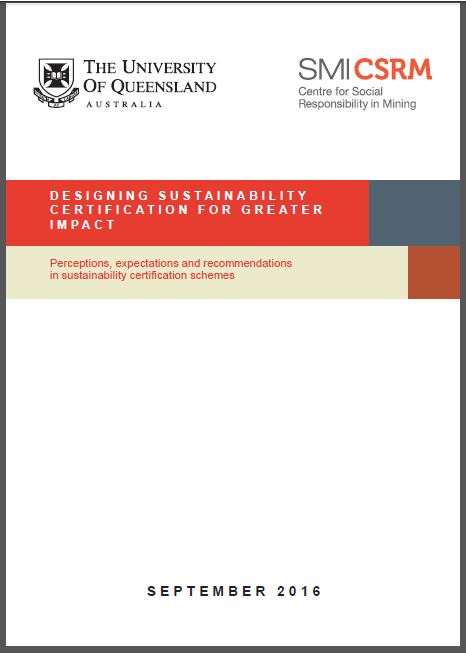Designing sustainability certification for greater impact: perceptions, expectations and recommendations in sustainability certification schemes
This report represents the second stage of an applied research project looking into the effectiveness of certification schemes in the minerals industry and the potential role sustainability certification schemes can play to improve standards for responsible mining. This report identified that participants interviewed have varied expectations and ideas about the drivers for participation in certification schemes, and also how different design characteristics influence the effectiveness of sustainability certification schemes in mining. There was also a range of views on how these differences influence outcomes on the ground in terms of ultimate development or conservation impact. Participants provided different insights and recommendations regarding nine different main topics: Stakeholder Participation; Monitoring and Evaluation (M&E) mechanisms; Interoperability; Transparency; Assurance; Standards; Sanctions for Non-Compliance; Local Development; and Capacity Building. The content of this report will be used during the following stages of this research project (interviews and fieldwork) as a base to further explore how different design characteristics leads to better outcomes and to provide recommendations to improve the practice. The research is being undertaken by the Centre for Social Responsibility in Mining (CSRM) at The University of Queensland and funded by The Tiffany & Co. Foundation through a grant to the University of Queensland in America.
Publisher: CSRM
Region: Global
Type: Report
CITATION
Mori Junior, R. and Ali, S.H. (2016). Designing Sustainability Certification for Greater Impact: Perceptions, expectations and recommendations in sustainability certification schemes. Centre for Social Responsibility in Mining (CSRM), The University of Queensland. Brisbane.

